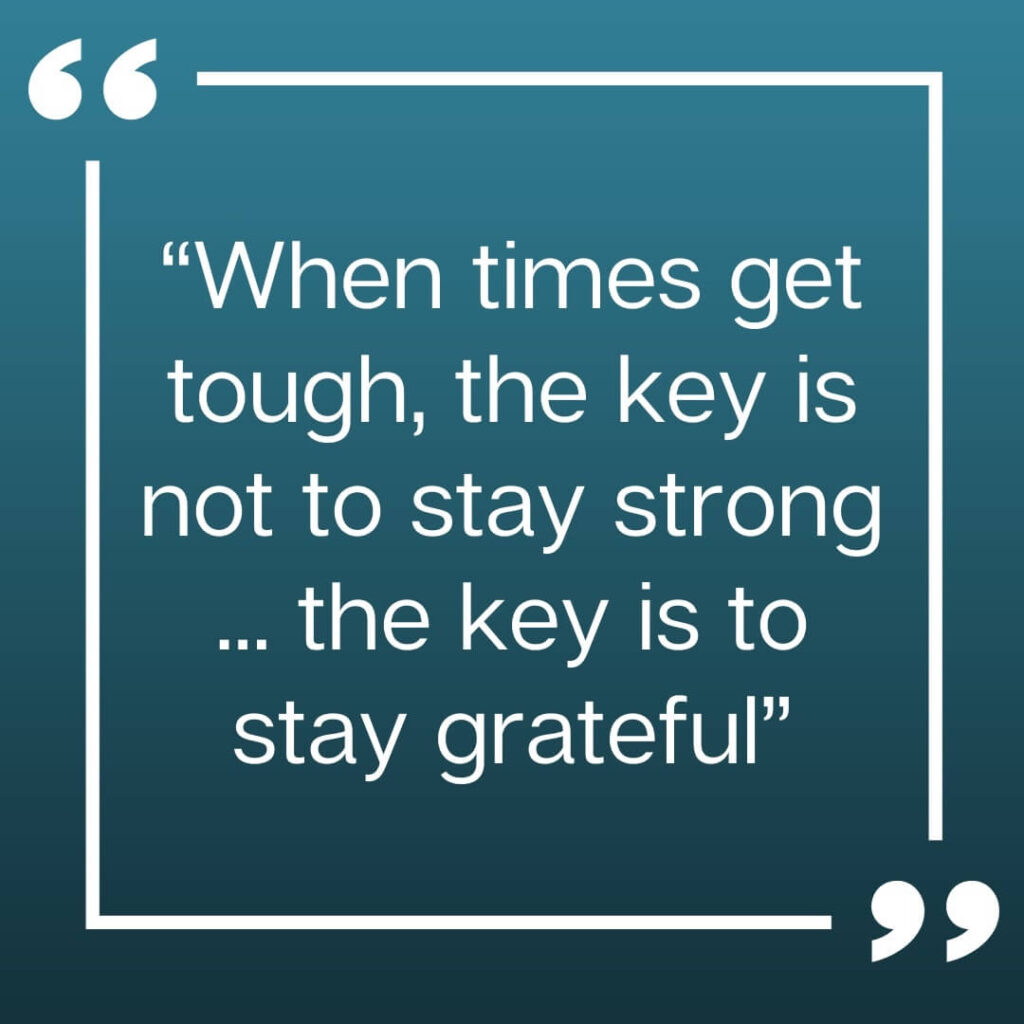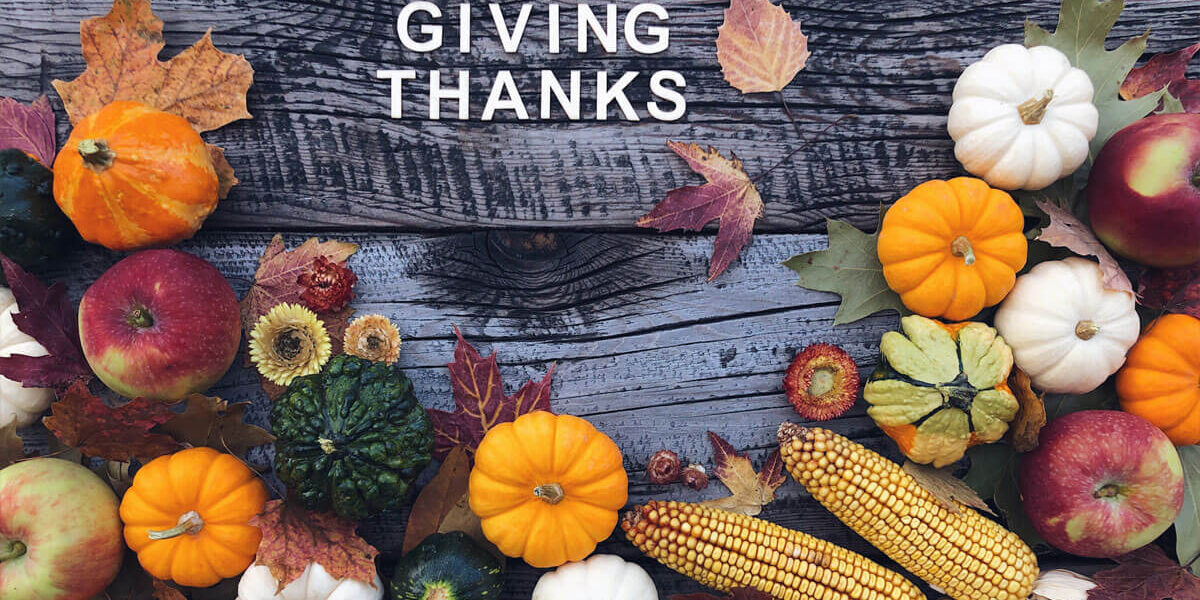Gratitude
Gratitude: “gra-tə-ˌtüd”
A feeling of thankfulness and appreciation
There are numerous research studies on the benefits of gratitude, but there may be some unintended consequences when it comes to how we think about it. Being grateful is encouraged from an early age, but often not just as a choice, but rather as a mandate.
Messages about gratitude in early life
Perhaps you grew up hearing statements similar to these from your parent or other caregiver:
“You shouldn’t complain. You have so much to be grateful for!”
“We sacrifice so much for you. The least you could do is be appreciative.”
“Don’t be so ungrateful! There are people in this world who have nothing.”
While these statements might be well-intended, they often have the effect of limiting our emotional space. We start to believe that it’s not okay to feel sad, disappointed, or angry when we have so much to be grateful for. We can become more preoccupied with guilt and shame, rather than gratitude.
If this sounds like your experience, you are not alone. Everyone has complicated internal beliefs that can become harmful, if left unchecked. Giving your parents, or other caregivers, the benefit of the doubt let’s assume they had good intentions in saying such things. More than likely, they were trying to help you focus on the many positive aspects of your life so that they could teach you to manage your negative emotions.
It’s been said “there’s no such thing as bad emotions, only emotions gone bad.” All emotions have adaptive properties that are necessary for survival. However, when we view certain feelings, such as anger, sadness, disappointment, and fear as harmful, or when we experience these “bad” feelings in others, we often focus our efforts on ways to extinguish them.
That’s when we start using gratitude as a substitute for “negative” feelings and, as a result, we develop myths and false beliefs about what it really means to be grateful. We start believing that gratitude can’t possibly coexist with other feelings. We also might think it’s shameful to feel or express anything other than gratitude.
So what is the truth about gratitude?
Gratitude can coexist alongside other feelings.
Rarely do we ever feel just one thing, and that’s okay! Our emotional lives are complex enough to hold multiple truths at once. That means we are capable of feeling both gratitude and sadness, gratitude and anger, gratitude and grief.
It isn’t shameful when we don’t feel grateful.
Gratitude is a feeling like any other. It is neither good nor bad – it just is. While you can choose to focus on things that promote gratitude, you’re not doing anything wrong when you don’t feel particularly grateful.
It is okay to express emotions other than gratitude.
When we are taught that it’s shameful to feel anything other than gratitude, we are inclined to suppress other feelings. However, when we hide and bury these feelings we miss out on the benefits and growth that come with those feelings, like greater resilience, improved self-care, or a gaining a new perspective.

We need gratitude during difficult times
Every holiday season comes with high expectations – happy family gatherings, festive meals together, and cozy conversations around the fire. However, for many, this time of year is marked with sadness, anxiety, or depression. Certainly, major depression, a severe anxiety disorder, or relationship distress benefits most from professional help, which is what we specialize in at R180. But what about those who just feel lost, lonely, overwhelmed, or disconnected at this time of year … and those who may never reach out for help?
Gratitude is strongly and consistently associated with greater happiness. Gratitude helps people feel more positive emotions, relish good experiences, improve their health, deal with adversity, and build strong relationships.
Gratitude helps us focus on what’s good, on what’s working rather than what’s not. It shifts the focus from problems to positives. When we focus on the good things in our lives, we train our brains to look for the positives. When gratitude becomes something we choose our problems don’t disappear, but they can feel more manageable.
People feel and express gratitude in multiple ways. They can apply it to the past (retrieving positive memories and being thankful for elements of childhood or past blessings), the present (not taking good fortune for granted), and the future (maintaining a hopeful and optimistic attitude). Gratitude is a quality that anyone can successfully improve.
A grateful attitude is more than just helpful – it is essential. In fact, it is precisely under crisis conditions when we have the most to gain by a grateful perspective on life. In the face of discouragement, gratitude has the power to energize. In the face of brokenness, gratitude has the power to heal. In the face of despair, gratitude has the power to bring hope. In other words, gratitude helps us cope with hard times.
This is not to suggest that gratitude comes easily or naturally in a crisis, but it is vital to make a distinction between feeling grateful and being grateful.
Remember, gratitude is your choice. It’s an attitude that endures and make us more resilient to the gains and losses that flow in and out of our lives. When difficulty strikes, gratitude helps us to not be overwhelmed by temporary circumstances. Yes, this perspective can be hard at times, but it is worth the effort.
Please reach out to Relationship 180 or refer your friends and family if we can help you during this season. Click the link below to find out more about how we can help.
Thank you for partnering with Relationship 180 "Turning Relationships in the Right Direction"
Relationship 180 is a 501(c)(3) nonprofit organization. Your donations and support make it possible for us to continue the work of helping individuals, couples and families in our community and beyond. Thank you for your generous support!




